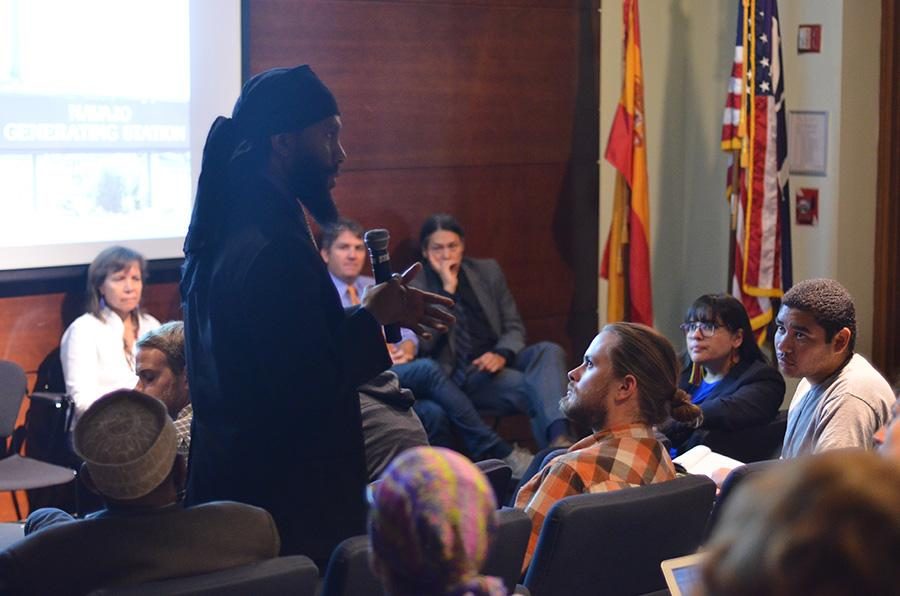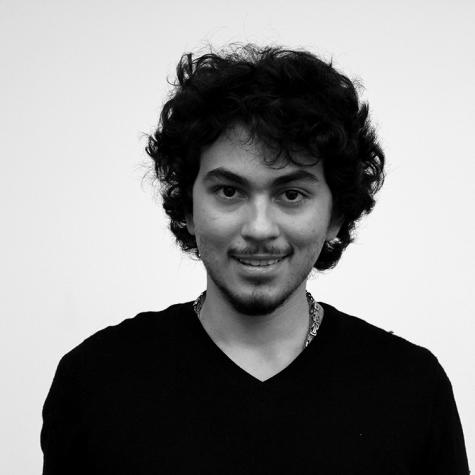Joint event spotlights genocide, oppression
September 23, 2014
Although many people associate genocide primarily with the Holocaust, the crime is a major part of North America’s, and New York City’s, past.
Experts from NYU, Columbia University and Yale University spoke on the history of genocide in North America and current issues facing indigenous people at a U.N. teach-in panel at NYU on Sept. 22. The event was in conjunction with the United Nations’ World Conference on Indigenous People.
Tiffany Hale, a doctoral student with the Yale Group for the Study of Native America, discussed the city’s history with the audience.
“Here in Manhattan, we are on Indian land,” Hale said. “Unfortunately, we are here speaking mostly English tonight, but it’s important to remember this was not always the case.”
Columbia professor Audra Simpson added that the same can be said of Canada and pointed to the issue of the Disappeared Women, which has become a serious issue in the country. Simpson said indigenous women are often raped, kidnapped and murdered.
“[Indigenous women] are two times more likely to be victims of crime than other women,” Simpson said.
Simpson said Canada’s government has been derelict in its efforts to solve these crimes. Women’s rights organization Committee on the Elimination of All Forms of Discrimination Against Women has repeatedly asked Canada to condemn all unfair treatment of women. However, their concerns have gone nearly unnoticed.
CAS freshman Savannah Fitzgerald-Brown said this inaction worries her.
“I’m partially Native American, so I’m interested in the topic,” Fitzgerald-Brown said. “It was glazed over when I was in school, but understanding the past will make us more knowledgeable about the present.”
The panelists said the problems that plagued Native Americans in the past continue to follow them today. NYU professor Andrew Needham said cities such as Phoenix rely on coal factories that reside upon Navajo land. Despite protests, the voices of the Navajo people remain unheard, leading many to wonder what comes next for Native Americans.
Former president of Quebec Native Women’s Association Ellen Gabriel said everyone needs to educate themselves on the issue.
“We need to decolonize our minds,” Gabriel said. “You’re a taxpayer, and you have a right to see what’s going on in your country.”
Simpson agreed that education is a major part of the fight for indigenous equality.
“Stay active before knowledge,” Simpson said. “Think about social justice, and think about decolonization.”
Needham said connecting with other organizations around the area can affect change in a major way. She added that for the indigenous issues to come to light, schools such as NYU, Columbia and Yale must support each other.
Yale junior Autumn Shone agreed and is looking forward to working with NYU students in the future.
“I definitely feel more empowered to do something about the issue,” Shone said. “I’ve had my own experiences where people try to deny that what happened to the indigenous people was genocide. I really want to talk to more people and let them know the truth.”
A version of this article appeared in the Tuesday, Sept. 23 print edition. Email Natalie Hansford at [email protected].

























































































































































